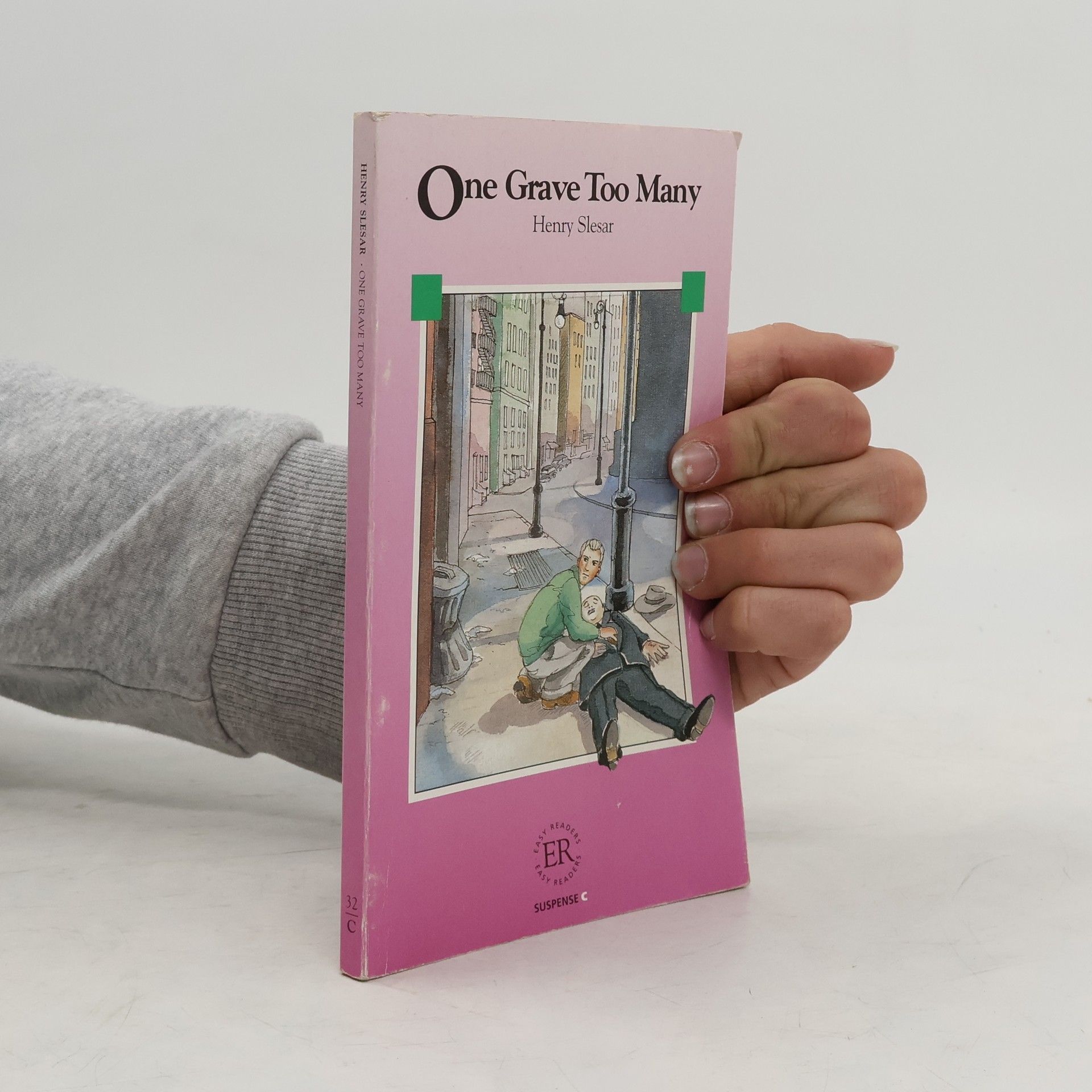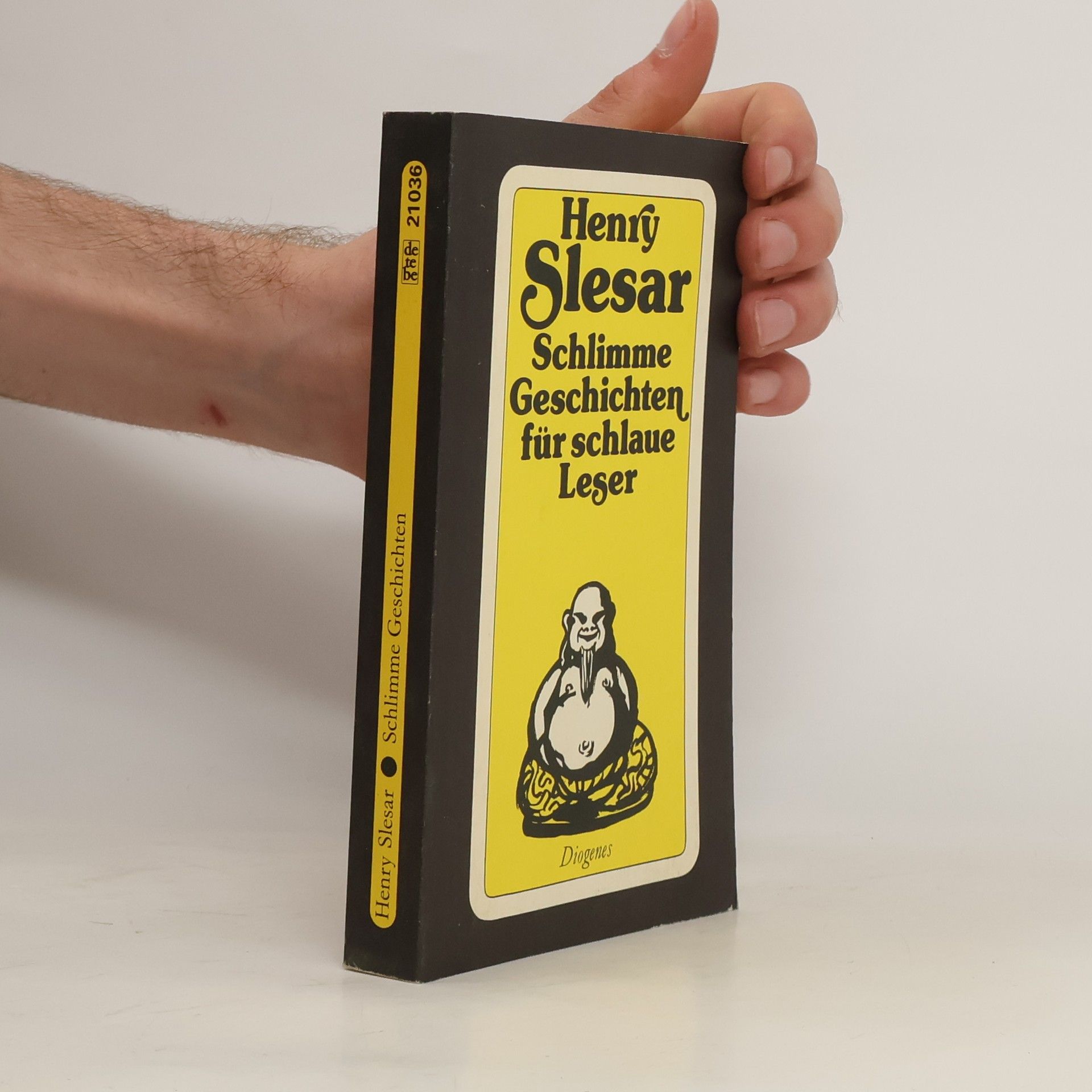Henry Slesar Libros
Henry Slesar fue un escritor estadounidense célebre por su maestría en la forma del relato corto. Sus narrativas se caracterizan por tramas ingeniosas, giros inesperados y una aguda perspicacia sobre la naturaleza humana. Slesar empleó hábilmente el suspense y la profundidad psicológica, creando relatos que cautivan al lector y provocan la reflexión. Su estilo conciso e impactante consolidó su reputación como una voz importante en la ficción especulativa estadounidense.







Teuflische Geschichten für tapfere Leser
- 176 páginas
- 7 horas de lectura
Wenn ein Firmenchef der Frau einer Mitarbeiters ein sehr unmoralisches Angebot macht, ein gekündeter Mitarbeiter mit allen Mitteln versucht, daß seine Kündigung zurückgenommen wird oder wenn der Computer des Personalchefs zu denken beginnt - dann ergibt das dank Henry Slesars teuflischer Phantasie teuflisch gute Geschichten für tapfere Leser.
Das Phantom der Seifenoper
- 271 páginas
- 10 horas de lectura
Nicht nur in der Oper kann ein Phantom sein Unwesen treiben, auch in einer Seifenoper. Und im Gegensatz zum Musical meint das Phantom es im New Yorker TV-Studio 43 ernst, todernst.§Im New Yorker Fernsehstudio 43, in dem eine Seifenoper-Serie gedreht wird, häufen sich heimtückische und meuchlerische Anschläge. Daß die Jubiläumstorte von der Decke herab auf die Schauspieler klatscht, ist mit einem gewissen Sinn für Humor fast noch zu goutieren. Daß aber Mitarbeiter verschwinden - und vor allem, wie sie wieder auftauchen -, findet keiner mehr komisch ...§Fünfzehn bissig-böse Geschichten.
The preservation of this significant work ensures its accessibility for future generations, featuring a modern reformatting that enhances clarity and readability. The book has been meticulously retyped and designed, avoiding scanned copies to maintain quality. Its historical importance is highlighted, making it a valuable addition to both contemporary and future literary collections.
The preservation of significant works throughout history is the focus of this republished edition. It has been meticulously retyped, redesigned, and reformatted to ensure clarity and readability. This modern format aims to keep the content accessible for both current and future generations, safeguarding its importance for years to come.
The show must go on, is a classical and a rare book, that has been considered important throughout the human history, and so that this work is never forgotten we at Alpha Editions have made efforts in its preservation by republishing this book in a modern format for present and future generations. This whole book has been reformatted, retyped and redesigned. These books are not made of scanned copies of their original work, and hence their text is clear and readable. This remarkable volume falls within the genres of Language and Literatures American and Canadian literature
Schlimme Geschichten für schlaue Leser - bk1152; Diogenes Verlag; Henry Selsar; pocket_book; 1982
Von Vorortgespenstern (Erwarten sie bloß keine rasselnden Ketten und düsteren alten Schlösser oder so etwas.), von außerirdischen Hobbyfilmern, von einem Glüeh-Club, dem nur die schönsten Frauen der Welt angehören - Ein neues Bündel Geschichten von Henry Slesar.
Milt Potter hat seine Jahre im Gefängnis abgesessen - und dort die Zeit für sich arbeiten lassen, Thelma Tompkins serviert Tee und Kaffee - und auf besonderen Wunsch auch Arsen, und Jocelyn Bonner weiß sich einen Einbruch sehr geschickt zunutze zu machen - siebzehn Mal konstruiert Slesar eine nahezu unglaublich klingende Geschichte mit dem bösesten Ende, das man sich vorstellen kann ... Alfred Hitchcock hat die Erzählungen zusammengestellt, um eine Einleitung ergänzt und wünscht dem Leser ekelhaft viel Spaß!§



